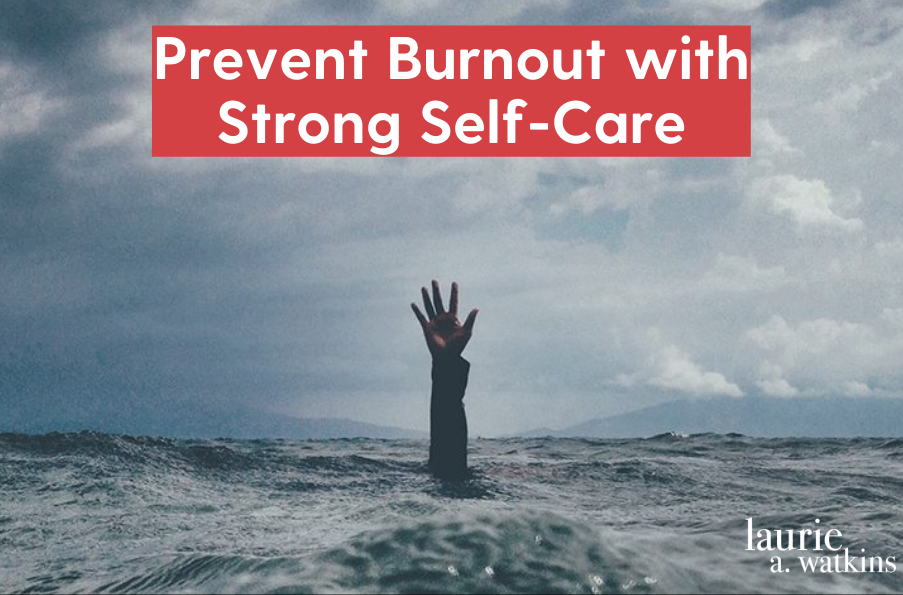During this year, so many things have contributed to making us feel burnt out. The pandemic itself can cause a ton of burnout. There is a 24/7 news cycle. Many people are working more than ever before being stuck at home, there are no longer any boundaries, only blurred lines. And being overworked can easily lead to burnout. In fact, a 2018 study by Gallup said the top 5 causes of employee burnout are: unreasonable time pressure, lack of communication and support from a manager, lack of role clarity, unmanageable workload, and unfair treatment.
Indeed’s recent salary report found only 18% of workers in the U.S. feel comfortable with how much they are making in their current position. In the year 2016, 662,000,000 vacation days went unused. While we don’t have the number for 2020 yet, we can imagine it is far more given the lack of travel allowed due to COVID-19.
Our essential workers are also facing burnout. Imagine being a doctor, or a nurse, or a teacher in these uncertain times. One such under recognized and unaddressed area that deserves a lot more attention is the mental health issues medical staff develop during the pandemic. The folks doing this work rank at the top of the list and are at greater risk for burnout.
Thankfully burnout isn’t inevitable. You can watch for the signs, and be proactive when you see them. If you start noticing any of the following in your own life, you need to take heed.
Physical Symptoms
Fatigue – not just sleepy, but that sluggish, heavy feeling that doesn’t get better right away, even after a good night’s sleep. You have to drag yourself out of bed, or find yourself falling asleep at your desk, or daydreaming without intending to. Insomnia and other changes in your sleep habits start to appear.
Digestive upset – frequent heartburn, queasiness, decreased appetite.
Headaches – Tension headaches, migraines, perhaps caused by eyestrain, or as a result of sleep deprivation or dehydration (both common when you’re pushing yourself hard).
Lowered Immunity – You feel run down, and are frequently getting sick.
Back pain – Are you feeling like you could always benefit from a massage, or having someone crack your back? It’s common to carry tension in your back when you’re approaching burnout.
Emotional and Behavioral Symptoms
Boredom – the most common emotional symptom of burnout is a generalized boredom. You’re not unhappy, you’re just not happy. Things you used to enjoy don’t seem as fun or challenging. You have an overall “been-there-done-that” feeling, especially about things that used to energize you, and there’s no obvious reason why. The only thing that’s changed, is how long you’ve been doing that thing, or how intensely.
Confusion or forgetfulness – you need to write everything down, and check it twice as many times, but still find that things are still slipping through the cracks. Your mind is wandering when people are talking to you, and you get easily confused if someone talks too fast, or asks you too many questions at once. If you try to learn something new, it’s harder than usual, or you feel like you’re spinning your wheels making no progress.
Impatience and irritability – you find yourself losing your cool more often, or crying more easily. Small things set you off, and you’re not interested in going out or spending time with friends of family. If you are with others, you may find yourself taking out your frustrations or boredom on them.
Frustration or cynicism – you’re not sure you see the point of what you’re doing anymore. You don’t feel motivated or appreciated, and you might even start skipping work, or coming in habitually late. Procrastination becomes a coping mechanism, and then you feel more overwhelmed and frustrated than you were before.
Use of food and alcohol to cope – comfort food or a daily drink (or both) become more like necessities than treats, and you start wondering if you could get through your day without them.
Of course, these could also be symptoms of other things, like a thyroid disorder or clinical depression, so if any of this sounds familiar, you should talk to your doctor as soon as possible. If everything checks out though, you should seriously consider whether you’re burning out like I was.
Think you are burning out? Here’s what you do.
Do some introspection, ask some questions, consider making some improvements. Think about your personal life. Do you have social support, and work life balance? What about your job? Do you feel in control of your career, have clear job expectations, and feel like the work is a “fit” for your skills, or interests? If you answer no to these, you may be honing in on the areas of your life that could be setting you up for burnout.
Most important, trust your gut. If you wake up each day, and feel like something just doesn’t feel right, or people you know well are saying you don’t seem like your “old self,” run through these questions, and make a plan. Even if you discover it’s already too late, you’ll bounce back from burnout a lot quicker if you recognize it for what it is.
As for treatment, that is very individual centric. Sometimes a simple vacation or lifestyle modifications can do the trick, other times you may need a career change or total life overhaul. As I am constantly emphasizing, spend lots of alone time and do some deep thinking. This is crucial and helpful in terms of understanding what’s going on with you.
Some ways to avoid workplace burnout can include discussing your concerns with human resources. They tend to be focused on creating a healthy workplace environment and will work with you and your manager to help the situation. If it is available to you, taking a vacation can also help you reset. In extreme instances, a change in job or position may be needed to put an end to burnout.
Burnout isn’t just happening in the workplace. Parents are burnt out too. Parents are facing a new, unrealistic reality of balancing work and homeschooling on top of the already existing adult pressures of maintaining a home (dishes, laundry, cleaning, meals, etc.).
In addition, we have all heard the term “caretaker burnout.” This phenomenon is on the rise during the COVID-19 pandemic. Many family and friends need an increased amount of caretaking. Whether it’s runs to the grocery store for high-risk people, help with medications, additional mental health check-ins, supporting someone in recovery, or other caretaker responsibilities, many people are overexerting themselves by taking care of others and neglecting their own self-care.
Here are some healthy ways to cope with burnout:
Exercise – It is good for your physical health, of course, but can also give you a mental boost. If you are coping with burnout, you may not have hours to spend at the gym. However, you can likely get out for a quick walk or try a workout at home by taking advantage of all of the free, virtual content.
Eating healthy – Eating a balanced diet can act as a natural anti-depressant. Certain foods contain nutrients that can help your body, which is far better than reaching for empty calorie, sugary foods.
Practice good sleep habits – Our bodies need rest! Do some research on sleep hygiene. It teaches the practice of going to bed at the same time, avoiding screens and caffeine, and other factors that can help improve your sleep habits and sleep quality.
Leave work at work – This is especially difficult these days. If you are working from home, set a time to unplug and log off. Truly walk away from your home office or computer and TAKE A BREAK. The work will still be there in the morning. If you are an essential worker, or someone who has returned to work, try to truly only work during work hours and leave the rest of the day for time for yourself.
Take time off – You are given vacation time for a reason. Normally, if you don’t use it, you lose it. We all need a break sometime. Whether it’s a vacation from work, a few days off from helping someone else (if possible), or even delegating some of your responsibilities that take up time so you have more time for yourself, taking time off is important.
Ask for help – It is important to do mental health check-ins with yourself. If we aren’t feeling our best, it’s important to reach out to family, friends, or a professional to get extra support.
It is important to know that stress and burnout are two different conditions. Burnout is essentially extended stress. If stress is short-lived or tied to a specific goal, it is most likely not harmful. It is more when these feelings of stress morph into emptiness, hopelessness, or depression that it may be indicative of burnout.
If you just can’t find the answers, then a coach or a therapist may be needed to help you sort things out.
If you’re having suicidal thoughts, no matter how much pain you’re experiencing right now, you are not alone and I urge you to call SAMHSA’s National Helpline – 1-800-662-HELP (4357).
SAMHSA’s National Helpline is a free, confidential, 24/7, 365-day-a-year treatment referral and information service (in English and Spanish) for individuals and families facing mental and/or substance use disorders.






